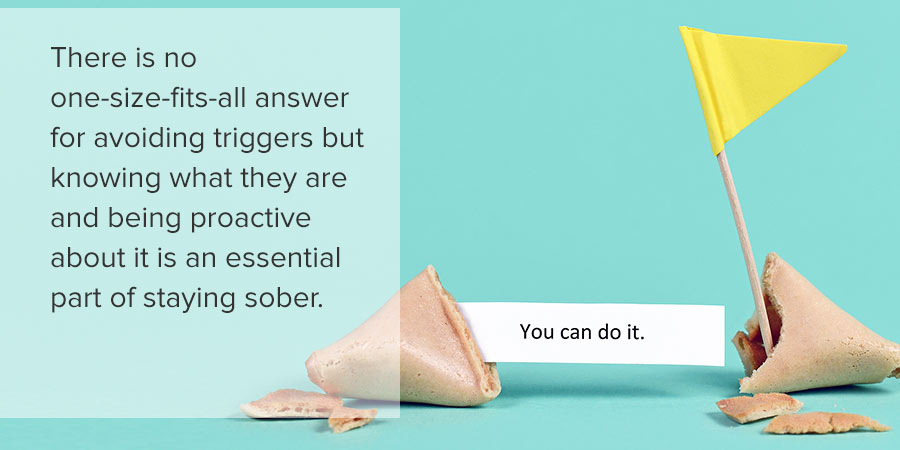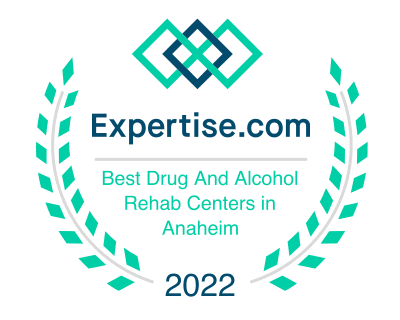What Happens When Your New Year’s Resolutions Do Not Work Out?
First, we need to understand why people make New Year’s resolutions and why they obsess about committing to them. Often, these resolutions stem from a desire to overcome negative emotions within oneself. In other words, you may feel unhappy with your current actions, feelings, or identity. Although the intentions behind these resolutions are usually good and self-motivating, they often focus solely on the goal rather than the process required to achieve it.
Matter of fact, most people falter on their resolutions because, even though their intentions are genuine, they lack a realistic plan for achieving their goals. Without a plan, it’s easy to feel lost, discouraged, or even depressed. Unrealistic expectations can quickly lead to anxiety and decreased self-worth, especially when addiction is involved. When this happens, it’s tempting to give up and return to unhealthy habits.
Like many things in life, achieving lasting change takes time and effort. If you find yourself struggling to maintain your resolutions, here are some strategies to help you stay strong and focused on your journey.
Why Do New Year’s Resolutions Fail?
Studies show that nearly 80% of New Year’s resolutions fail by February. When it comes to addiction recovery, the stakes are even higher. Unrealistic expectations, a lack of a concrete plan, or insufficient emotional preparation can all contribute to setbacks. Addiction recovery isn’t about quick fixes; it requires understanding, preparation, and support.
Strategies for Maintaining Long-Term Addiction Recovery Resolutions
Understand the Root of Addiction
There are many reasons people may become addicted to drugs or alcohol, but one of the most common is the desire to numb pain. If the root of your addiction stems from pain, it’s crucial to address this issue before setting high expectations for immediate results.
Although there are rapid options for detoxification, there are no miracle recoveries. Your brain and body need time to adapt to functioning without substances. Emotions may feel overwhelming at first, which is why preparation is vital. Whether you seek a mental health professional for support or organize your daily routine to reduce stress, setting a foundation of essential steps will help you adhere to your recovery plan.
Know Your Triggers
Knowing your triggers is essential to maintaining sobriety. If you’re likely to relapse around certain people or in specific environments, do your best to avoid these situations. If avoidance isn’t possible, create a plan to cope. This may involve having a supportive friend with you or leaving the situation as quickly as possible.
While there’s no universal answer for avoiding triggers, being proactive and aware is a critical step in staying sober.
Create Resources for Support
When triggers occur, it’s crucial to know what resources are available and how to access them quickly. Recovery is an ongoing process, not a one-time event. Seeking help isn’t a sign of weakness—it’s a sign of strength and self-awareness.
Feeling overwhelmed at times is normal. Reaching out to someone you trust, whether it’s a therapist, family member, or friend, can help you navigate challenging moments and stay on track.
Enjoy the Process
While achieving sobriety is a serious goal, incorporating enjoyment into the process can make it more sustainable. Research suggests that finding joy in your journey increases the likelihood of success.
For example, reward yourself for milestones—buy a small treat, indulge in a favorite activity, or invest in something that motivates you, like new workout gear. These small joys can turn a challenging process into something more manageable and fulfilling.
Relapse Prevention and Forgiveness
Relapse is not uncommon in addiction recovery, but it’s how you respond to it that matters most. Create a relapse prevention plan with the help of a therapist. This plan should outline specific steps to take when cravings arise and provide strategies for quickly getting back on track if a relapse occurs.
Remember, a relapse doesn’t erase your progress. Think of it as taking a wrong turn on a road trip—you can always find your way back. Forgiveness and self-compassion are vital. Speak with your therapist about the relapse and work together to identify strategies for moving forward without self-blame.
Take Care of Your Body
One of the most effective ways to support recovery is by prioritizing your physical health. What you eat doesn’t just nourish your body—it also significantly impacts how you feel and behave. The connection between nutrition, emotions, and actions is critical, especially during recovery.
- Sleep Well: Rest is essential for physical and mental restoration. Adequate sleep can reduce cravings, improve your mood, and enhance your ability to make healthier decisions.
- Eat Healthy: A well-balanced diet replenishes the nutrients depleted by substance use, helping to restore your physical and mental health. Proper nutrition not only stabilizes your mood but also positively influences your energy levels and mental clarity, which can guide your actions in a more constructive direction.
- Exercise Regularly: Even light exercise can improve sleep, enhance energy levels, and promote a positive mood. Physical activity supports your body’s recovery while reinforcing your ability to stay consistent with healthy habits. Start small—consistency matters more than intensity.
Taking care of your body lays a strong foundation for both emotional well-being and sustained sobriety, allowing you to navigate recovery with greater resilience and clarity.
Accountability Partners Can Be a Huge Asset in Recovery
Having an accountability partner can provide encouragement and guidance throughout your journey. Choose someone you trust who understands your struggles and is committed to supporting you. Work together to identify triggers and develop strategies for overcoming them. This partnership can be a powerful tool in maintaining long-term sobriety.
Get Help from Professionals If You Need It
Overcoming substance use on your own can be not only difficult but also risky. Withdrawal symptoms are often unpredictable and, in some cases, dangerous. Fortunately, professional medical detox programs provide a safe and effective path to recovery. Choosing detox in an accredited hospital ensures you are monitored by healthcare professionals who can manage withdrawal symptoms while addressing your unique health needs.
If you’ve tried to quit on your own without success, it’s time to consider an inpatient detox program. These programs offer comprehensive care, including medical attention, emotional support, and tailored tools designed to help you achieve lasting change. Unlike detox attempts at home, professional programs ensure that your physical and mental health are prioritized throughout the process.
A medically supervised detox can stabilize your body, minimize discomfort, and prepare you to address the deeper challenges associated with addiction. By creating a personalized treatment plan, professionals can help you regain control of your life and move forward with confidence. Remember, seeking help from experienced professionals is one of the most effective steps toward long-term recovery.
Finding a Reputable Treatment Center
There’s no one-size-fits-all approach to addiction recovery. Take the time to research treatment options that cater to your specific needs. Look for programs with board-certified physicians, accredited facilities, and a strong reputation for success.
Unfortunately, some facilities prioritize profit over patient care. Be cautious and choose a reputable center that genuinely prioritizes your health and well-being.
Conclusion: Take Recovery One Day at a Time
Recovery is not a linear process but rather a dynamic journey marked by growth, challenges, and resilience. Setbacks, while disheartening, are not failures—they are opportunities to learn and recalibrate. Each day presents a new chance to strengthen your foundation, and every small, deliberate step brings you closer to lasting wellness.
When feelings of overwhelm arise, allow yourself the space to pause, reflect, and refocus. Revisit the reasons you embarked on this journey and draw strength from your commitment to change. The path to recovery is as much about persistence as it is about progress, and your willingness to adapt will serve as a cornerstone for success.
Recovery is deeply personal and multifaceted, requiring physical, emotional, and psychological effort. By seeking professional support when needed and acknowledging your achievements, no matter how small, you honor the transformative work of healing. Each decision you make today to invest in your well-being will compound into a healthier, more fulfilled future. Remember, recovery is not just possible—it’s achievable with patience, perseverance, and the right resources.
Call now to speak confidentially with an addiction expert
Sources:
Reviewed by Clare Waismann, M-RAS / SUDCC II, Founder of Domus Retreat®
All topics for the DomusRetreat.com blog are selected and written based on high editorial quality standards and cited source material. Clare Waismann, Registered Addiction Specialist (RAS), Substance Use Disorder Certified Counselor (SUDCC), and founder of Domus Retreat and Waismann Method®, reviews articles for accuracy, credibility, and relevancy. Clare Waismann is an authority and expert on opioid dependence and related topics covered on the DomusRetreat.com blog. Please see our Terms of Service for additional information and disclaimers regarding third-party sources and content for informational purposes only.









